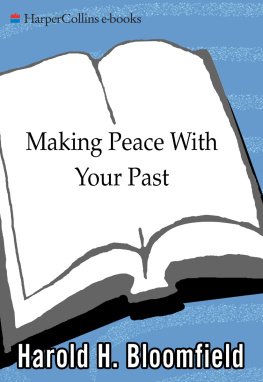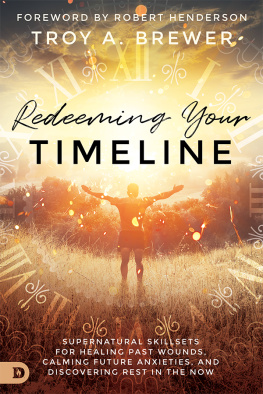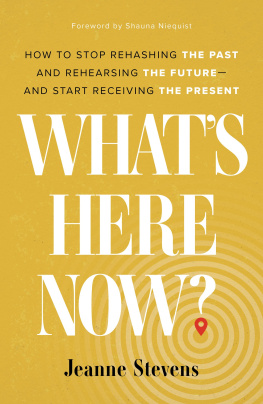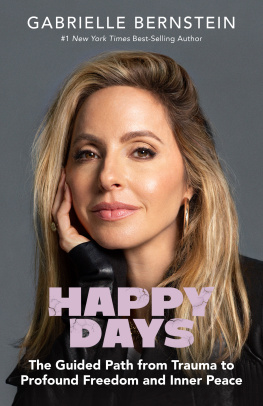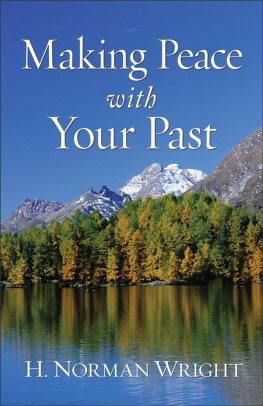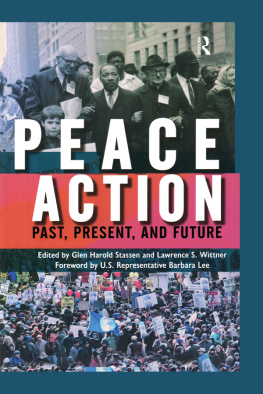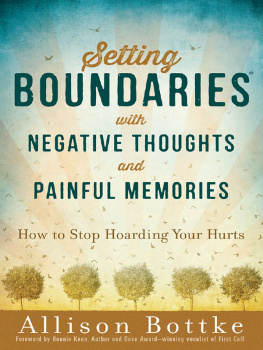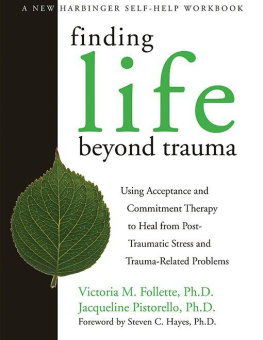Dedicated to the teachers of the heart who helped me make peace with my past, especially my beloved wife, Sirah.
and to you, dear reader, my deep respect for your desire to heal, love, and be more.
We must make peace with our past; our lives may literally depend on it. In 1998 the prestigious American Journal of Preventative Medicine published a landmark study by a team of researchers at Kaiser Permanente Medical Care Program working with epidemiologists from the Centers for Disease Control (CDC) in Atlanta.1 The survey of nearly 20,000 people found that those with adverse childhood experiences were, as adults, far more likely to suffer from cancer, heart disease, chronic lung disorders, and other leading causes of death.
The researchers asked questions such as, Did a parent or other adult in the household often or very often swear at, insult, or put you down?, often or very often act in a way that made you afraid that you would be physically hurt?, and other queries pointing to significant childhood adversity. Those who had encountered abuse (physical, psychological, or sexual), or were raised in dysfunctional families (with violence, substance abuse, mental illness, or criminal behavior), were far more likely to develop life-threatening illnesses. In fact, an adverse childhood proves to be as powerful a predictor of subsequent illness as smoking.
Mental health professionals have always known that a painful childhood can contribute to significant emotional problems in adulthood. Studies have shown that childhood abuse and neglect increase the risk of personality disorders, addiction, anxiety, depression, and other psychological problems.2 Now, with this groundbreaking study, there is hard data linking adverse past experiences with increased morbidity and mortality.
Why should there be such a link? For one thing, people whose early years are marked by emotional injury are far more likely to have high health risk factors. The study found a strong correlation between childhood adversity and obesity, physical inactivity, and smoking, as well as depression and suicide attempts. High levels of exposure to adverse childhood experiences would expectedly produce anxiety, anger, and depression in children, the researchers concluded. To the degree that behavior such as smoking, alcohol or drug use are found to be effective as coping devices, they would tend to be used chronically. And those risk factors, of course, would jeopardize their health.
There are additional plausible explanations as well.3, 4, 5 A large number of research findings indicate that prolonged psychological adversity has a destructive impact on the physiology, making the person much more vulnerable to illness. It is well established by more than two decades of neuroscience research that the suffering of the past becomes emblazoned in the neural circuitry of the nervous system. A large body of evidence indicates that the very structure of our brains is dramatically impacted by adverse experiences such as shame or terror.
From a psychiatric perspective, the pain we try to suppress or repress doesnt just go away; unless these experiences are acknowledged, expressed, and resolved, emotional pressure continues to build, producing suffering and distress. Every day of the year, for instance, marriages break up because of still-unresolved pain from past love relationships.
Many people who have been through trauma or prolonged emotional hardship are hypervigilant, going through life continually on guard against any possible repetition of previous horrors. This hypervigilance bombards the body with waves of adrenaline and cortisol. Among other things, excess adrenaline can cause the overcontraction and eventual rupture of heart muscle fibers, increasing the risk of cardiac arrythmia, and sudden death. Excess cortisol is known to lower immune response, raise cholesterol levels, and even kill brain cells.
Overall, the chronic stress of unresolved emotional pain breaks havoc on your immune and circulatory systems, cardiac function, hormone levels, mood and memory, even your physical coordination and metabolic rate. In addition, the cascade of free radical cell damage produced by chronic stress is thought to contribute to as much as 80 percent of all illness.
The good news is, our brains and bodies have remarkably plasticity; we are capable of fully healing old emotional wounds, breaking self-defeating habits, and consciously transforming the way we think, feel, and act.6, 7, 8 We can actually change the molecules, neurons, and even the operant genes that determine our physical, mental, and spiritual well-being. Through modern imaging technology such as PET scans and MRIs, we can see the limbic system, where emotional memories are stored, begin to be rewired for happiness and inner peace through specific techniques such as those used in this book. We can heal ourselvesand stop passing on emotional pain and suffering to future generations.
In a sense, I have known about the effects of painful early experiences my entire life. I was raised by Holocaust survivors. My mother had been so traumatized by the brutal murder of her parents during hitlers reign of terror that my early years were marked by the constant chaos of what we now call adverse childhood experiences. I remember thinking at a very tender age, I am being wondered now, but I will heal later. I made a sacred vow to find the means to heal myself and share that knowledge with others. I was seven years old when I decided to become a psychiatrist. Later, my wounds led me to become an ardent seeker of psychological and spiritual truth. My personal and family life has benefited greatly from my effort to make peace with my past, and my professional work has been dedicated to helping others make peace with theirs.
Making Peace with Your Past is a systematic program based upon 30 years of work with tens of thousands of clients and seminar participants. Combining scientific research and recent breakthroughs in psychotherapy, I have developed a series of easy-to-follow guidelines and practical, powerful exercises that can rapidly reduce suffering and bring deep, lasting peace of mind. This book will not only show you how to come to peace with an adverse childhood, but with the still-burning wounds of adolescence and adulthood as well .
You can heal yourself. The runaway train that carries the wounds of past adversity hurtling toward a future of illness and sorrow can be stopped in its tracks. You may have known violence, shame, fear, turmoil, and despair. You may carry with you the lonely torment of guilt, regret, and self-doubt. Your heart may have been broken repeatedly and your spirit many times crushed. Still, you can heal; your past is not your destiny. You can transcend the boundaries of past circumstances, for life always seeks to surpass itself.
Making peace with your past is not about fixing yourself, but changing yourself. This book will help you release the residue of the past that no longer serves you. It will also open new vistas and grand possibilities. No longer dragging the weight of a painful past behind you, you will be free to love and thrive, not just survive; free to create yourself anew, and march into the future confident, open hearted, and joyful. What was once the source of suffering can now become a great resource for spiritual evolution and personal maturity. With a strong commitment here and now, you will make peace with your past .

